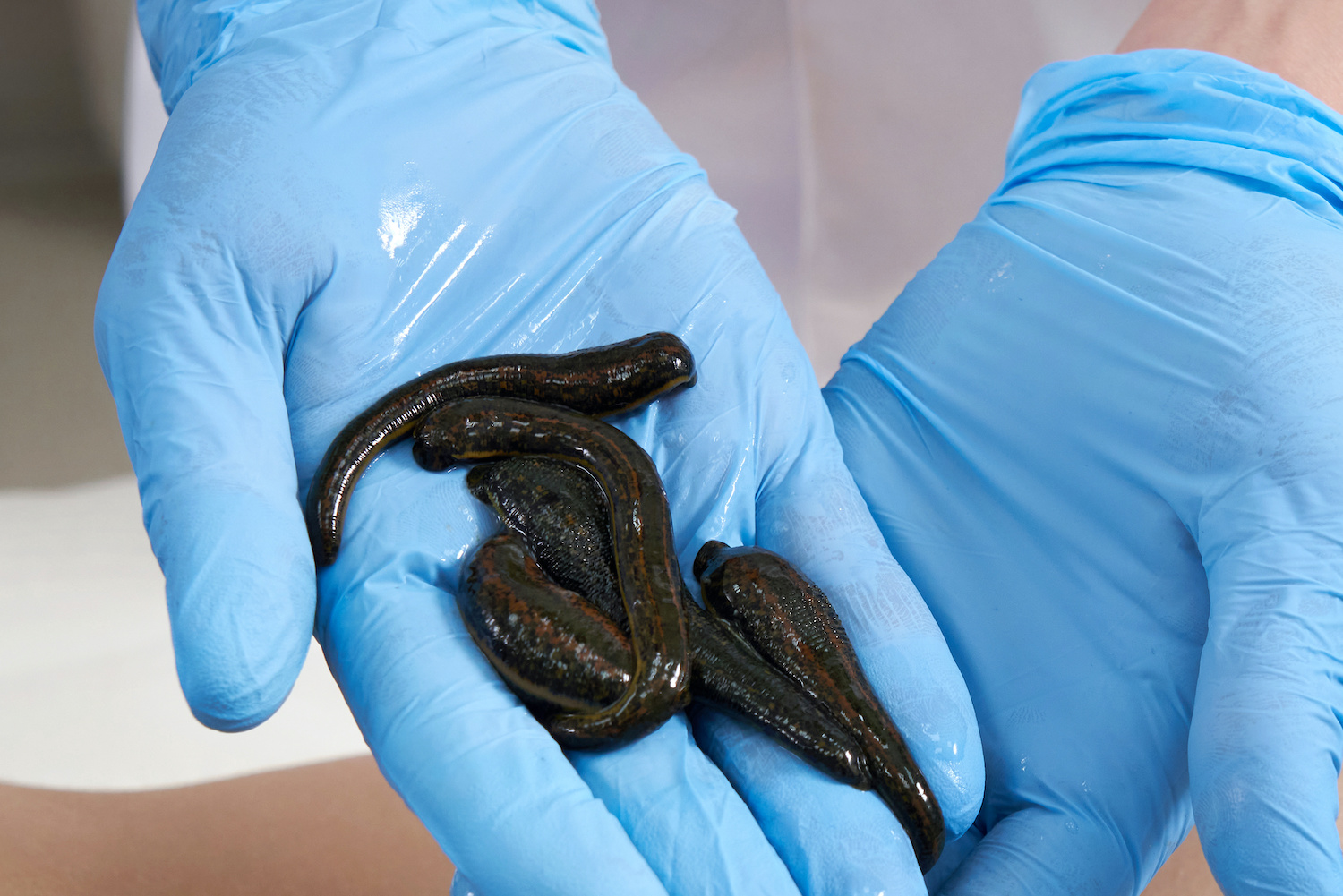Leech therapy has been used since ancient times for various reasons, including the desire to improve mood and well-being. In the past, people were not fully aware of how leech therapy helps with neurological diseases, but they felt a noticeable improvement in mental condition after a session. Now that we know much more about this topic, we can confidently say that applying leeches benefits the nervous system.
The nervous system is considered the most complex system in the human body. Changes within it are often difficult to diagnose and even more challenging to treat. Leech therapy can help in treating the health consequences of these changes.
Which neurological diseases can leeches help with?
Leeches are indicated for use in the treatment of neurological disorders such as depression, anxiety, or nervous tics. Where do they come from, and how can they be recognized?
Depression
This is a disease that affects people of all ages. In psychiatry, this term refers to a specific type of mood and emotional disorder. Depression is characterized when a patient feels sadness and despair and shows an apparent lack of interest in daily activities or even a lack of will to live. This condition persists uninterrupted for at least two weeks.
What are the symptoms of depression? One of the most important is the aforementioned lowered mood, pervasive sadness and hopelessness. In addition, there is a lack of joy and energy. A person with depression may also experience a range of physical symptoms, including headaches and insomnia.
Depression can have various causes. Biological aspects associated with depression are disturbances in the neurotransmission of serotonin, dopamine, norepinephrine, acetylcholine, or genetic predispositions. For some, hormonal disorders involving cortisol or a deficiency in thyroxine and testosterone in men, while in women, a decrease in estrogen levels is behind the development of depression.
Anxiety disorders
Problems known as anxiety disorders are today referred to as anxiety or neurotic disorders. They belong to the group of civilization diseases. Some sources indicate that symptoms characteristic of anxiety disorders are manifested by one in five people on Earth.
A typical symptom of anxiety disorder is fear, which can be triggered in the patient by certain factors or situations. Panic attacks may also occur due to exposure to a specific object. Besides fear, those with anxiety disorders experience a range of somatic complaints, such as heart palpitations, shortness of breath, increased sweating, or headaches.
Anxiety disorders can have various foundations. Biological factors (e.g., the state of the nervous system, neurotransmitter disorders), social factors (e.g., family, work), or situational factors (e.g., an excess of duties, many life changes in a relatively short time), as well as traumatic experiences (e.g., psychological trauma or chronic stress), are considered possible reasons for their development.
Nervous tics
Nervous tics are involuntary, repetitive muscle contractions in the face or body. These afflictions intensify due to stress or periods of physical or psychological exhaustion. The spasms often recur, and the patient loses control over their body during their occurrence.
Nervous tics can vary. The primary division primarily includes the type of action repeated by the patient. Motor and vocal tics can occur in different parts of the body. Moreover, tics can be simple (e.g., shrugging shoulders, blinking, shaking the head) or complex (e.g., making obscene or prohibited gestures, involuntary imitation of movements and actions of other people).
Sometimes, it is difficult to pinpoint a definitive cause for tics. They may be due to genetic factors, among other things. Uncontrolled movements sometimes appear in the course of various diseases.
Leeches for neurological diseases – how does it work?
As is known, leeches attached to the skin, upon embedding, release a range of therapeutic substances into the bloodstream. One of these is endorphin, the hormone of happiness. As a result of its action, the patient feels calm and euphoric; if the pain was felt before, it is much weaker or completely absent.
Leeches also secrete neurotransmitters such as histamine, dopamine, acetylcholine, and serotonin, which are essential for the proper functioning of the nervous system. It’s no wonder, then, that applying leeches can help treat depression since one of its direct causes is, indeed, neurotransmitter disorders.
It’s also worth mentioning that research has isolated substances from leech salivary glands that stimulate the growth of nerve cells. This opens up the possibility of using leech therapy to treat neurodegenerative diseases, including neuromuscular dystrophy and Parkinson’s disease.

